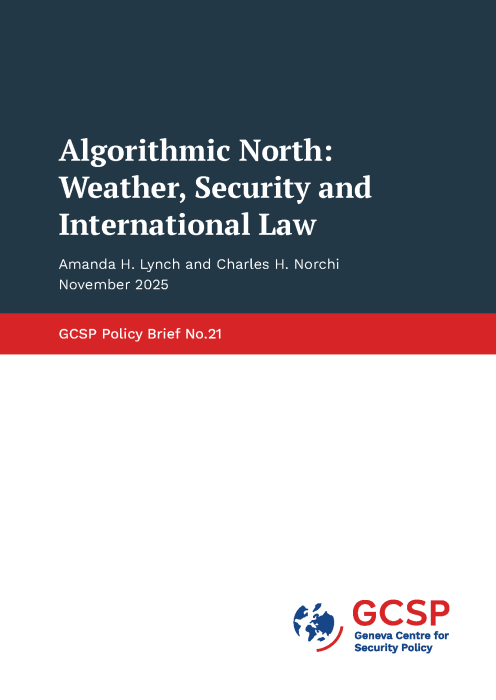Algorithmic North: Weather, Security and International Law
Artificial intelligence (AI) and machine learning (ML) technologies are reshaping core practices and infrastructure worldwide, but in the Arctic, this transformation is not merely disruptive – it is decisive. The region is at once climatically unstable, geopolitically conested and operationally fragile. Accurate weather, water, and climate (WWC) services form the backbone of safety, mobility, and sovereignty in the High North. As Arctic stakeholders turn increasingly to AI/ML to enhance decision-making support, they are rapidly building dependencies on systems in an institutional vacuum. In a region where the margin for error is slim and the consequences of failure severe, these shifts demand urgent policy attention. At the same time, international law is struggling to keep pace. No treaty regime governs algorithmic decision-making in the Arctic, and the patchwork of relevant norms were not designed for this convergence of technical innovation, commercial incentives, and environmental exigency. This Policy Brief situates the algorithmic transformation of Arctic WWC services within its broader legal and security context. It concludes by outlining three domains for policy intervention: international organisations, international law and international security.
Disclaimer: The views, information and opinions expressed in this publication are the authors’ own and do not necessarily reflect those of the GCSP or the members of its Foundation Council. The GCSP is not responsible for the accuracy of the information.


